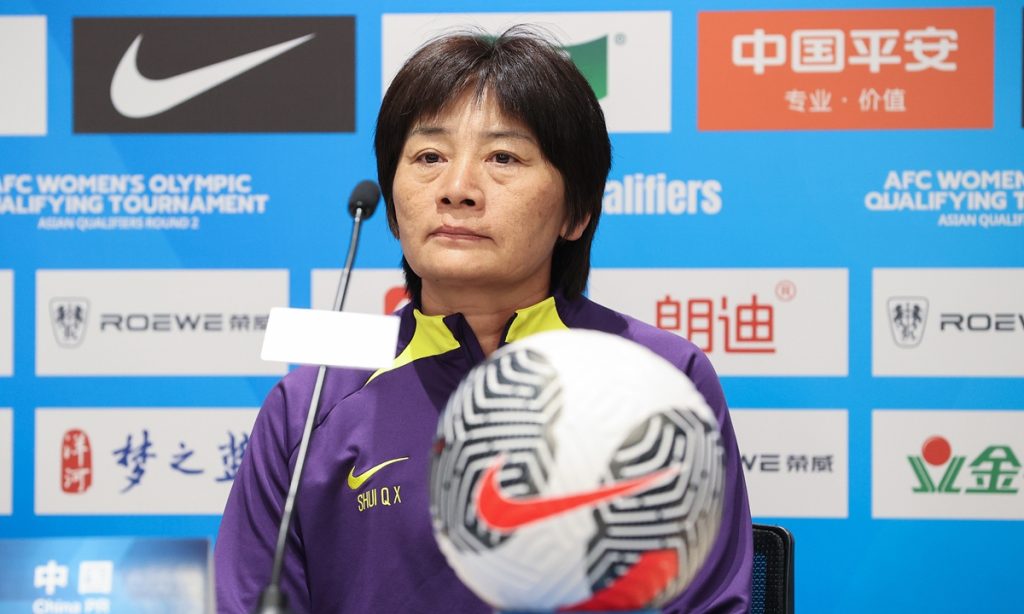Chinese women’s national soccer team takes on challenges in Olympic qualifiers

The Chinese women's national soccer team is gearing up to face their Asian opponents in the second-stage qualifiers for the Paris Olympics.
The team will be competing in front of a home crowd in Xiamen, East China's Fujian Province, on October 26.
To secure their place in the third-round qualifiers, they will have to battle through a highly competitive group - dubbed the "group of death" - which includes strong teams like North Korea, South Korea, and Thailand.
Despite this, the Chinese team, led by head coach Shui Qingxia, remains determined to strive for success.
"We will unite as a team and give our best efforts to perform well in this competition," Shui said.
2023 has been a monumental year for the Chinese women's national soccer team as they have faced three major challenges - the World Cup, the Asian Games and the Olympic qualifiers.
The Paris Olympics qualifiers, in particular, present a high level of difficulty for the team.
Only the group winners and the best performing second-place team among the three groups in this stage will advance to the next round, making it imperative for China to aim for the top spot in the group.
But looking back at China's performance at the Asian Games, the team lost to the second-string Japanese team in the semifinals, which disappointed many, though Shui's team ultimately secured a bronze medal.
As the host of current stage of the Olympic qualifiers, the Chinese women's team's primary goal is to secure a place in the next round.
Acknowledging the strength of all the teams in the group, Coach Shui emphasized that the team is fully aware of the challenges ahead and is mentally prepared.
Following a brief rest period after the Asian Games, the team regrouped in Xiamen on October 11 to prepare for the Olympic qualifiers.
However, during the initial phase of the training camp, overseas-based players were only able to gradually join the squad due to club commitments.
"Overseas players have their advantages and disadvantages. The downside is that they are busy with their club commitments, and the time for team bonding and adjustment is limited," Shui told reporters.
"However, their experience in club matches keeps them in good physical condition and maintains their rhythm."
One notable absence from the squad for the Olympic qualifiers is Wang Shuang, who is unable to participate due to injury.
While this may be disappointing for Chinese fans, the team's roster features several young talents.
Players like Zhang Linyan, Shen Mengyu and Shen Menglu have been called up. Additionally, young midfielders Tu Linli and Wang Yanwen, who has made a strong comeback from injury, are part of the team.
Compared to the squad that participated in the FIFA Women's World Cup earlier in 2023, the average age of the team has dropped from 27.5 years to 25.8 years. This signifies a noticeable shift toward a younger generation of players.
Zhang, whose performance in the Swiss Women's Super League last season won applause, has joined the English Women's Super League club Tottenham Hotspur, making a goal-scoring debut on October 12.
The emergence of these young talents is an encouraging sign for the future of Chinese women's soccer.
"I hope the young players have a spirit that allows them to perform better because of their youth," Shui emphasized while discussing her expectations for the emerging generation of players.